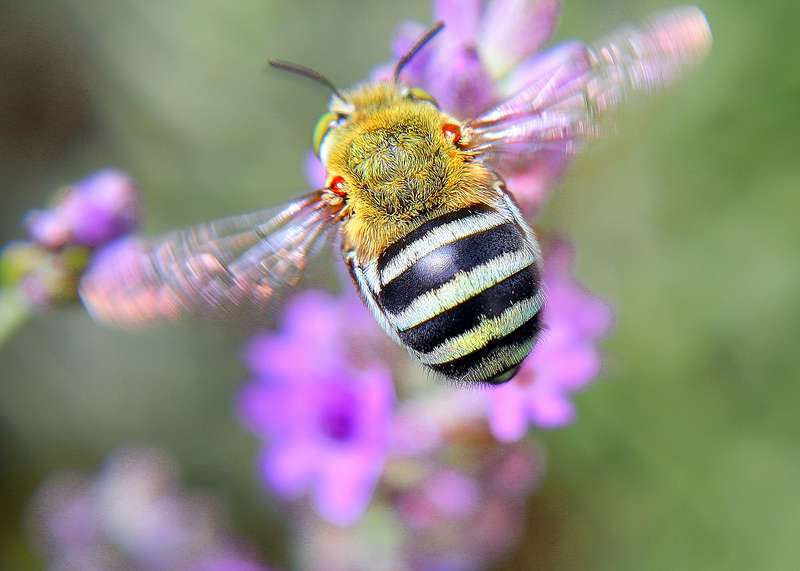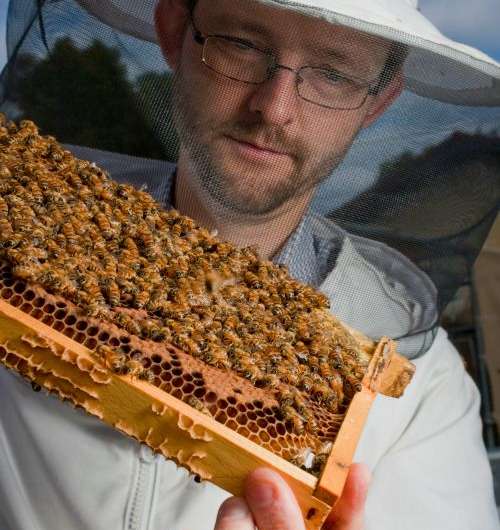More sex key to protecting bee populations

They're small, they're responsible for helping produce a third of the world's food production, and their foraging habits and sex lives are crucial areas of scientific research.
According to Professor Boris Baer, the director of UWA's Centre for Integrative Bee Research (CIBER), bees are the unsung heroes of the planet: big travellers and hard workers.
The foragers from a colony of honey bees can travel a total of 450,000 kilometres a day—equivalent to travelling 11 times around the world—and pollinate some 6,000,000 flowers.
But there is a global decline in bee numbers and although parasites and pathogens are partly to blame, the cause of the decline is still a bit of a mystery.
As part of a UWA Research Week event, Prof Baer outlined some of the interdisciplinary research initiatives underway at CIBER to counter bee losses.
He says the million dollar question is: how do we save bees?
One answer is genetic diversity. Prof Baer can sum up another approach in four words: "more sex is better".
To better understand bee reproduction, Prof Baer and CIBER utilise an artificial insemination technique for bees.
He said a better understanding of bee reproduction can result in stronger populations and less disease, and help beekeepers' queen breeding programs.
Part of CIBER's research involves using mass spectrometers to better understand the molecules present in bee seminal fluid and how queen bees reproduce.

It turns out, honey bees have an interesting mating habit.
Once a queen bee mates with several males and lays its first egg, she never re-mates.
In effect, she will retain a lifetime's supply of sperm in her body, possibly enough to lay 1.5 million eggs over its lifetime of up to three years.
Prof Baer said WA is an ideal place to study bees: it is isolated, there is tight biosecurity, and fewer of the chemicals and pests that have ravaged bee populations elsewhere in the world.
He said WA has a wide population of bees and, in effect, the South West of WA is a 'Noah's Ark' for these insects.
"You might have one of the last remaining healthy bee colonies in the globe," he said.
And because WA's winters are not as severe, honey production is greater.
He says in Switzerland, a hive might deliver 16-20kg of honey a year; in Germany, it might be 20-30; while in WA it can be much, much more.
"Our bees will give 200-300kg of honey from a hive," he says.
Provided by Science Network WA
This article first appeared on ScienceNetwork Western Australia a science news website based at Scitech.





















